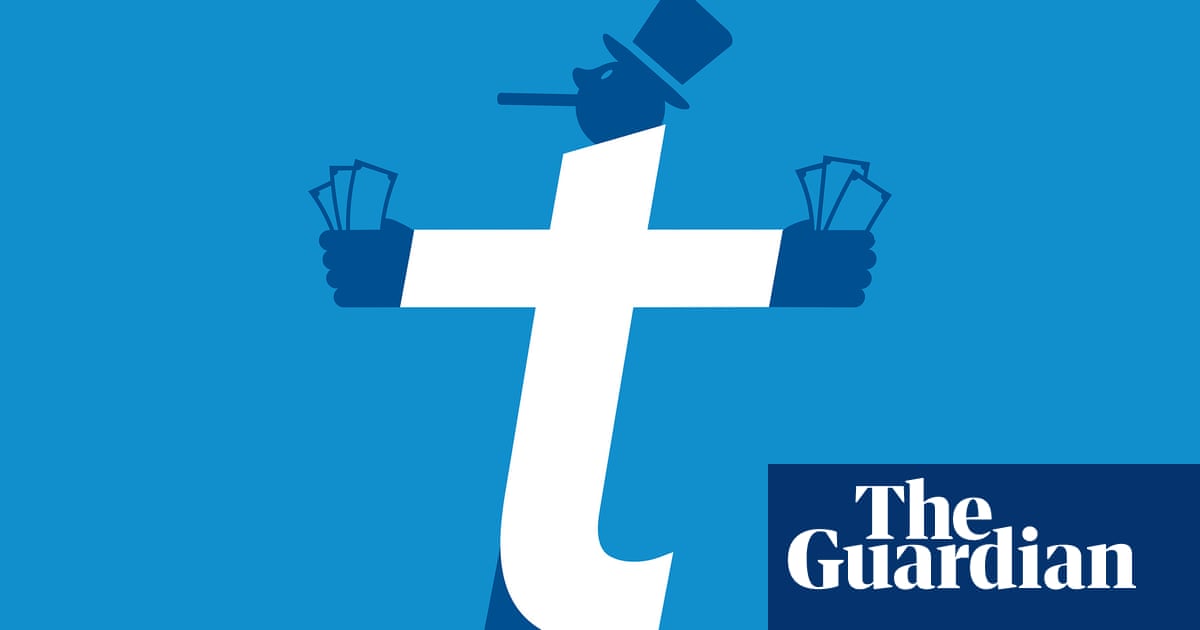You may know the drill. You get online at 10am, several months before the show, and receive a place in the virtual queue. Perhaps you notice with dismay that your number is larger than the capacity of the venue. Perhaps you then lose your place because you’ve been misidentified as a bot, or the site crashes altogether. If you make it to the front, you may well wonder why £100 (plus about £20 in opaque surcharges) now qualifies as a cheap seat. And that’s if there are any cheap seats left, not just inflated VIP packages. And you may ask yourself why it has to be like this.
When you don’t get what you want, you tend to look for someone to blame. That someone is usually Ticketmaster. The company, which merged with concert promoters Live Nation in 2010 to form Live Nation Entertainment, sells about 70% of all concert tickets worldwide, and an even greater proportion of the arena and stadium market. In 2024, Live Nation generated a record $23.2bn (£17.5bn) in revenue, with Ticketmaster selling 637m tickets. Rivals such as See Tickets (owned by Germany’s CTS Eventim) and AXS (the ticketing arm of promoters AEG Presents) aren’t exactly minnows but Ticketmaster has become a synonym for ticketing: a lightning rod and a punchbag.
In the US, Ticketmaster’s current problems stem from a cardinal error: getting on the wrong side of Swifties. In November 2022, the company failed to stagger the presale for Taylor Swift’s Eras tour, listing all 2m tickets simultaneously. The colossal demand overwhelmed the servers, causing myriad problems. Swift expressed her disappointment. Ticketmaster grovelled. Last May, the US justice department (DOJ) filed an antitrust suit, now backed by 39 states, which alleges that Live Nation and Ticketmaster use their “power and influence … to freeze innovation and bend the industry to their own benefit”.



This monopoly is one of the best examples of our government being broken by lobbying. This problem is a least 30 years old and nothing has changed in all that time.
Absolutely. Between Ticketmaster and LiveNation, almost every performing venue in the United States is completely dominated.
We desperately, desperately need legitimate anti-trust actions in the United States; we need something that will reintroduce some actual competition into the market.
The first failure of the federal government that led to this path was in the 1990s and the Microsoft Antitrust Trials. That was the point at which there really could have been another way–but the billionaires, at that point, had all the inroads to government that the Reagan Administration made possible. Because Microsoft could buy politicians, the vast majority of people on the planet have never used any operating system other than Windows, and the Microsoft company gets billions upon billions of dollars from state/federal/municipal contracts.
Google and Apple, then, just followed the path that Microsoft bought and paved through government regulations. And that made it easy for other billion dollar companies like Ticketmaster and LiveNation to do the same thing in other realms–simply buy the laws, buy the politicians, buy the system that’s supposed to regulate them, and then use that system to remove all competition.
Most notably, actual competition – a supposedly great boon of capitalism that drives up value for the customer – nowhere to be found in that formula. This is the exact same path i believe we watch every successful product or service eventually take.
Concerts are the biggest way artists make money these days too. Support your local bands people.
Oh but it has. Things have been getting progressively worse.